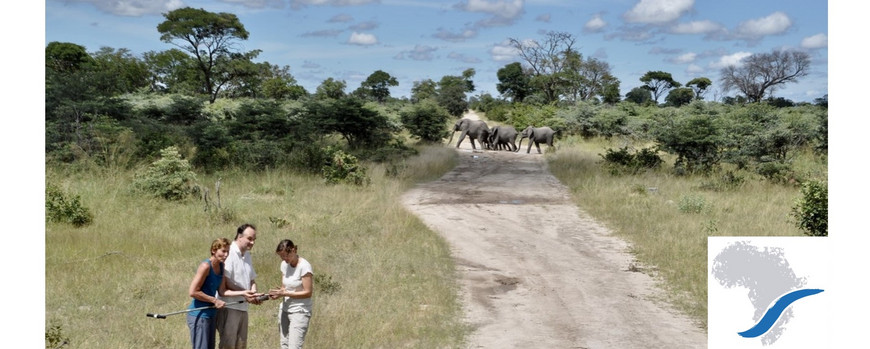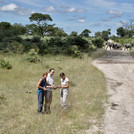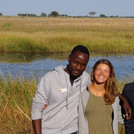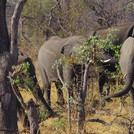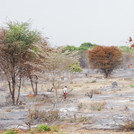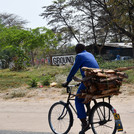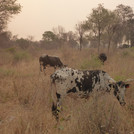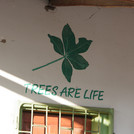Future Rural Africa
Future Rural Africa - Future-making and social-ecological transformation
Future Rural Africa is a large transdisciplinary collaborative research centre addressing the intricate relationship between future-making and social-ecological transformation. Future-making, the CRC´s key concept, means that ideas of the future as envisioned today are translated into plans, policies, and spatial transformations. They materialize along newly emerging development corridors, shifting bio-cultural frontiers and large-scale land-use changes. The project combines expertise from different academic disciplines, ranging from geography, anthropology, and agronomy to political science, vegetation ecology, and virology. The CRC is funded by German Research Foundation (DFG, runtime: 01/2018 – 12/2025).
Official website: Future Rural Africa
Mission
The central research questions of the CRC address the relationship between large-scale land-use change, social-ecological transformation, and future-making. They serve as guidelines for interdisciplinary cooperation.
- How can we understand and research future-making in rural Africa from different disciplinary perspectives?
- How and by whom are rural African futures made probable and/or possible?
- What are the main challenges and consequences of future-making in rural Africa?
- In which way are conflicting visions of future expressed, negotiated, and translated into large-scale land-use change and ensuing social-ecological transformation?
We are participating in the CRC with project A01: Future Carbon Storage [link to subproject site], in which we as vegetation ecologists determine carbon storage in trees and shrubs along pathways of land-use change, and collaborate closely with soil scientists, environmental economists, GIS experts, and Namibian scientists with a focus on wildlife management. We are interested in how land-use and future-making change savanna vegetation structure and impact biodiversity of trees and shrubs. Furthermore, we aim to understand how future changes will impact the resource base and ecosystem service delivery of trees to local livelihoods.
Opportunities
You are welcome to inquire about possibilities for PhD or post-doctoral positions. Please check vacant positions or contact Prof. A. Linstädter (linstaedter@uni-potsdam.de) directly. Should you seek opportunities for a Bachelor or Master thesis, please check our institutional list of topics for theses.
Future Carbon Storage
The project Future Carbon Storage (A01 within CRC Future Rural Africa) is jointly headed by three PIs from the University of Potsdam and the University of Bonn.
Aims | Project A01 views the consequences of future-making in rural Africa through a carbon lens. Together with soil scientists, we as vegetation ecologists determine carbon storage in vegetation and soil under varying land-uses. Along two major pathways of land-use change (conservation and agricultural intensification), we evaluate carbon storage dynamics and carbon losses through disturbances. Along the conflicting pathways, we furthermore assess synergies and trade-offs between carbon storage and other ecosystem services which are important to local livelihoods. |
Approach | Our methodological approach relies on allometric tree and shrub measurements and our newly developed method for biomass and biomass loss estimation in disturbed dryland vegetation. This data is complemented by biodiversity metrics, plant functional traits, C:N analyses, and ethnobotanical questionnaires. |
Expected Outcome | Understanding carbon storage potential and at which temporal scales carbon is sequestered in soil and vegetation; Assessing in how far carbon storage dynamics are influenced by land-use and future-making; Quantifying whether carbon losses from agriculture can be offset by nature conservation schemes; Understanding systemic coupling mechanisms between land-use decisions, carbon storage, biodiversity, and other ecosystem services. |
Persons Involved
| PI
PostDoc
PhD
|
Cooperation partners | Faculty of Agriculture & Natural Resources, University of Namibia (UNAM), Namibia Department for Wildlife Management and Ecotourism, University of Namibia (UNAM), Namibia Institute for Food- and Resource Economics (ILR), Economics of Sustainable Land Use and Bioeconomy, University of Bonn Institute of Crop Science and Resource Conservation (INRES), Division of Soil Science, University of Bonn
|
Outreach |
|

